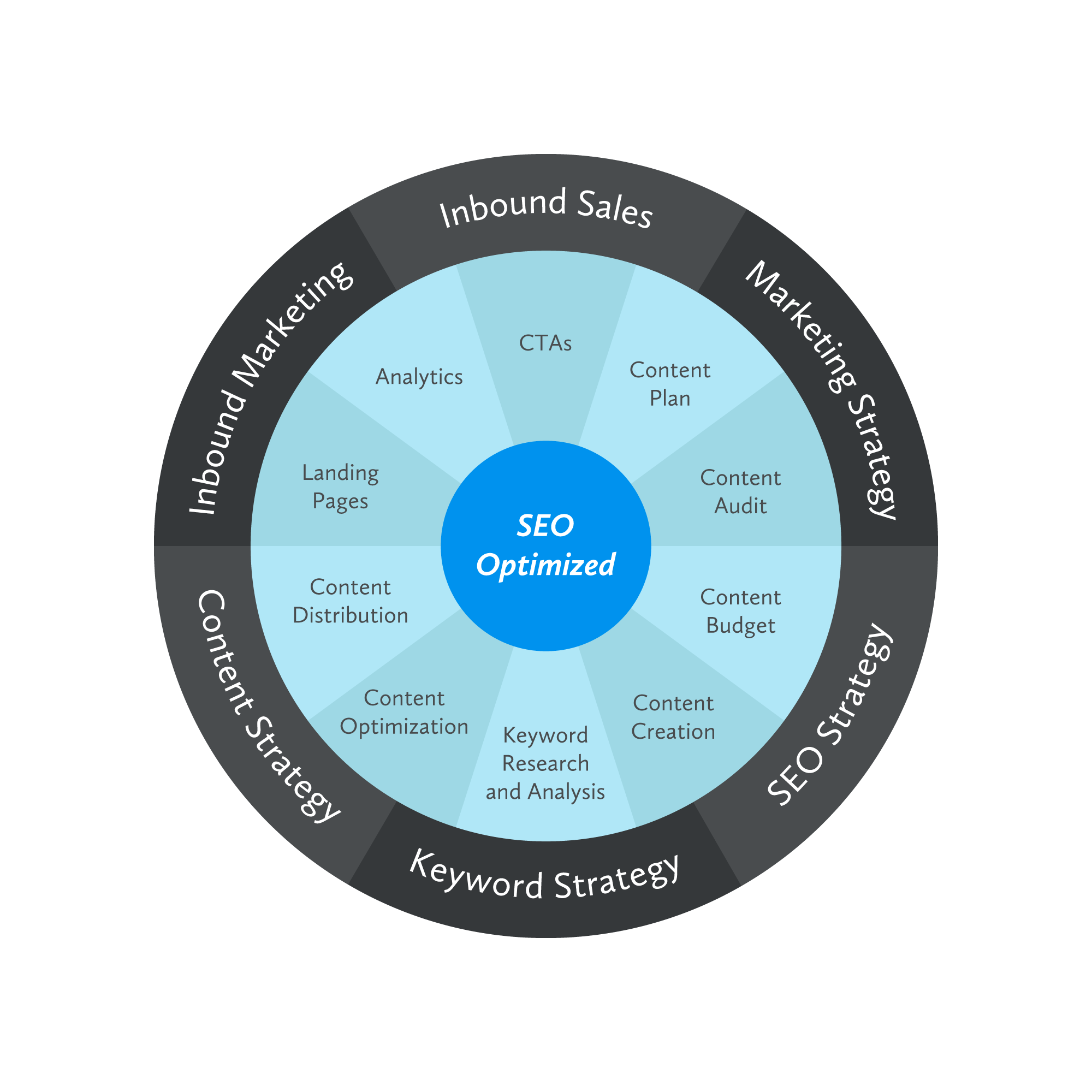Become an SEO Expert By Learning From SEO Experts
Essential SEO Fundamentals: Start Here
What is SEO? Your Clear, Simple Introduction
SEO is all about optimizing your website so that it attracts more organic traffic to your website. The better optimized your site, the higher rankings you will be awarded from the search engines. When done right, your site will garner more organic search results. It is a never ending process of continuous optimization. The search engine algorithms are constantly being updated, which in-turn, means you must constantly update your website. SEO is also one of the activities with the highest potential ROI of any activity marketing performs.

SEO Strategy
Coming up with the right SEO Strategy for long term business success requires hands on experience, continuous SEO training, and a good feel for what the business actually does or sells. Without a good SEO strategy, a business is likely to fail with its digital marketing efforts. With the right SEO Strategy, executed consistently using appropriate SEO techniques, SEO professionals will see the effect in each search result. The first time you rank a page on the number one position (SERP) will be a day you remember. To get there, you'll need work on your SEO Skills. This page and the downloadable guide on learning SEO will give you a big leg up on the competition. Did we tell you SEO is a highly competitive game?
Search Engine Land Can Be Complicated
We Simplify It
Long gone are the days when you could rank websites using conventional search methods for businesses as online search engines have largely supplanted telephone directories and newspapers. Google rolls out updates to its Search Algorithm on average, twice a day. All with the mission of making it easier for their users to find the information they are searching for. That includes information about local businesses and service providers who can provide them with the product or service they need.

It is a MUST now that every business takes the initiative on how they get found online.
Learn From Search Engine Marketing Experts
Whether your SEO has been established or is in its beginning stages, our free guide, "Learning SEO From The Experts", will show you SEO aspects and strategies from the best SEO SEM experts including:
- Rand Fishkin from SEOmoz
- Dharmesh Shah from HubSpot
- Rebecca Churt from HubSpot
- Stephanie Chang from Distilled
- Greg Shuey from SEO.com

Search Engine Marketing experts using both on-page and off-page Search Engine Optimization (SEO) can help you identify highly profitable keywords. Every page on your website must have a defined purpose. Using these keywords in a search engine friendly way, helps to tell Google what each page is about and ultimately, what your website is about. Conversely, every page you create needs to be based on the search intent as revealed by the context of the Keyword. Some are obvious, like 'buy' or 'try', while others may be entirely vague. This is where you really need to know what you sell and how you sell it. Whether the product is sold entirely online, a la Amazon, or is a combination of online research and offline closing, radically influences not just how you approach SEO, but how much you invest in marketing overall.
Other SEO Learning Opportunities
In addition to downloading our free book and learning the SEO Best Practices from these experts, you should know about a few of the other readily available SEO learning resources. The Hubspot Academy offers SEO Certification, and for customers, it is free. SEMRush and Ahrefs also offer various SEO related certifications on their platforms. Other sources include Google itself, Backlinkinfo, LinkedIn learning and OpenSAP. Then, of course, Youtube offers endless hours of "How to" SEO videos, but they do not offer certification - but you can still get a lot of value from them. Another great resource is Rand Fishkin's Whiteboard Friday's, where he does a deep dive on a single SEO subject.

From Keyword Research to Content Plan
Keyword Research: Find Your Money-Making Terms
Uncovering these highly profitable keywords should also point the way toward a Content Plan that is designed to attract an ever increasing flow of organic traffic. This organic traffic will also reveal a lot about user intent, if you have the right analytics system in place. This is turn, will drive higher SEO ROI results.

Content Marketing: Create SEO-Driven Content That Converts
As a Certified Hubspot Partner, we provide Inbound Marketing and Inbound Sales; we help our clients develop their content strategy using the output of the Keyword Research Process. The Content Strategy covers both performing an internal Content Audit of what you have on-hand, as well as a plan for each piece of content, by type, for each stage of your sales funnel.

Competitor Analysis
Every day, your business faces new competitors who throw up stiffer competition. That's why your Keyword Research Process must include a thorough and complete competitive analysis. This may start with performing a SWOT (Strengths, Weaknesses, Opportunities, Threats) analysis of your own business, but using tools like SEMRush, you can identify who Google thinks are your competitors. With this information in hand, you can then steer your content strategy and content plan toward the profitable niches that your business can compete successfully in.

Common Search Engine Optimization Points to Look For
Once you know what keyword (typically a two to three word phrase, known as a long tail keyword), you want a page to rank for, you should place it in:
- Page Title Tags.
- Page URL. With the Keyword as close to the beginning of the URL as possible.
- Meta Descriptions. Your page meta description should include your target keyword.
- H1 Tag. You should also ensure your page has only one H1 Tag.
- H2 Tags. You should use keyword variations in your h2 tags.
- Internal Links. Every page should have at least one internal link from one other page. There are many internal linking rules laid out in Google's webmaster guidelines you should consultant
Pillar Page Content
While each page should be fully optimized, it is important that it forms part of what Hubspot calls a Pillar Page Content Strategy, while others (Yoast) refer to the same concept as Cornerstone Content and yet other refer to as Skyscraper Content or 10x Content. What it boils down to is creating a comprehensive set of pages, each fully optimized, around a core Topic or Theme forming a content hub. Then interlinking them, so that Google eventually sees you as an authority source on the Topic. This is how you become a Topical Authority.

SEO Audit
We highly recommend every client run their website's URL through our free Website Grader. It provides insight into how your website performance is and points out actions you can immediately take to improve your website's SEO.

Using Google Analytics to Improve Digital Marketing Results
Use Google Analytics to review your traffic sources, dive into your user demographic information and more. We highly recommend you install Google Tag Manager (GTM) and install the Google Analytics Tracking Code in GTM. This makes all of your subsequent website tagging far easier from a maintenance standpoint.

Google Analytics and Google Search Console
Once you have Google Analytics installed and verified as receiving traffic from your website, you will want to set up Google Search Console, and integrate the two Google Properties. This will then allow you to start to see which keywords a page is ranking for. It will also tell you, among many other data points, which keywords a particular page ranks for. If you plan on running Google Ads, you will also need to integrate Google Analytics with it. This is a simple step, yet one many advertisers fail to do.

Link Building: Build Authority & Boost Rankings
Google's guidance on external links has remained largely the same over the years - it is a primary factor its search engine considers when it decides how or whether to rank a particular site for a given keyword. That's why link building remains primary, though difficult task of the SEO professional. Many chose to outsource this task, but you should be aware that many links you end up with may be from toxic websites and need to be disavowed, a non trivial, on-going site maintenance task.
What Does Google Use Backlinks For?
Google uses links as a signal when determining the relevancy of pages and to find new pages to crawl. It isn't just presence of a backlink from one site to another that it is looking for. It is looking for something called the Domain Authority (DA) or in some other instances, Domain Ranking (DR), as well as the anchor text that was used to create the link and the relevancy of the target page to the source page. It is also making a judgement, using Artificial Intelligence and Machine Learning (AI/ML) to decide whether the anchor text falls where it should naturally, rather than being forced for ranking purposes. It also wants to know whether the links come from trusted sources, are Follow or No-Follow type links and whether they were sponsored (paid for).

SEO Tools
There are many SEO tools to help you with your SEO efforts. Some, such as ahrefs and SEMRush, are ideal for finding keywords you might not have thought of. Others, such as Google, are ideal for finding out what the search volume might be for your search terms. Others, like ScreamingFrog, allow you to dive deeply into your existing site (and a competitors) and learn about every relevant SEO aspect of each page on your site. Hubspot's marketing hub has SEO optimization tools built into it at every page level. The biggest challenge you will have with the tools is the time to learn them, and the cost to have access to them.

Keyword Research Tools
Besides Google, there are many other platforms that can help you find new keyword ideas. Focus on the ones people in your niche use to ask questions, communicate and share ideas. Some examples include: Reddit, Quora, YouTube, forums, Facebook groups, LinkedIn, both Groups and Individual Posts, Github and Amazon (yes, Amazon, ideal for finding keywords for ecommerce operations and for those who publish many books, such as this author). Each of these is a powerful keyword research tool, but each requires experience actually using them to extract the keyword value you need from them.
A Youtube Channel Can Provide Incredible SEO Insights
Publishing high-quality videos on Youtube on a regular basis can help you grow your viewership and channel subscribers. This, in turn, provides valuable information which you can access and analyze using your YouTube Channel Analytics, which is only accessible to the Channel Owner or YouTube Creator. Youtube has become the 'go to' resource for How to videos. These are usually created in response to actual problems your potential customers are facing.

Provide a Video Sitemap for Best Results From Video
One often overlooked element of successfully leveraging a video is a video sitemap. Most CMS systems do not create one by default, so you have to create one of your own. In addition to ensuring that the Google Search Engine (and others, such as Bing) can 'see' your video, it allows you to tell the search engines what the video is about.

Structured Data
Another SEO element that is increasing in importance is known as Structured Data. These are small snippets of code you insert at the page level (on the backend, typically in the header), that tell the search engines exactly what the page is about, who created it, who they work for, and what value or benefit you should expect to get from the page once you take the expected action, such as download a document, run a calculator or take an assessment quiz, all typical types of schema.org tags you can create.

Semantic HTML
At a slightly deeper technical level is a concept called Semantic HTML. It also helps the search engines understand what a page is about. It does this by changing the underlying HTML so that it reflects what each section or portion of a page is about. This helps to create a hierarchy of the pages structure. For example, if you have customer testimonials on a page, this would be one way to let the search engines know what they are and where they are.

Social Media Influence on SEO
The role social media plays in improving your SEO outcomes cannot be overstated. While many believe those posts you put on Facebook, Twitter and LinkedIn are invisible, nothing could be further from the truth. Nor should you want them to be. What you do want is that messaging on the different social media platforms supports your overall marketing strategy.

Email Marketing Lead Nurturing
Once you've taken all of the aforementioned SEO steps, have the traffic coming in and are generating leads, there's still a major task ahead to fully leverage your newly acquired SEO digital marketing skillset. That is the ability to craft SEO optimized emails and use them to nurture leads through your sales funnel. This is where a system like Hubspot becomes indispensable to your marketing success. You can not only use it to craft and send emails, you can send them to customer segments of one, which is considered the optimum level of email marketing success.

SEO Optimized Blog Posts
Of all the SEO tactics you'll need to employ, the one with the best long term payoff is consistent blogging. But not just any blogging will do. You have to create blogs that are both high quality and useful. When someone reads one of your blogs, they should experience some sort of transformation. For many small businesses, this can be an extremely taxing activity, but one that pays long term dividends. Blogging isn't something you do once and you're done. It is, instead, a long play, of consistently researching, producing and distributing your blog.

Role of SAP SEO SEM Experts
As founders of SAP BW Consulting, Inc., we are both focused on SAP lead generation and Hubspot Inbound Marketing experts. As SEO marketing experts and unlike most SEO SEM professionals, we use our highly developed, deep knowledge and experience with the SAP HANA and SAP ECC solution to develop a SEO improvement roadmap for each of our SAP clients. More than 1,000 SAP partners regularly read our blogs and consume content from our site. In some cases, thousands of SAP consultants from a single SAP Partner have learned something from us.

Key SEO Metrics
Like all activities, SEO must be measurable to be improvable. Though the list of potential SEO KPIs is long, there are a few you must be aware of and track meticulously:
- Domain Authority
- Top Pages
- Search Volume
- Number of and Quality of Backlinks
- Page Speed
- Mobile Usability (Google use Mobile First Indexing)
Learn More From the SEO Advice Experts
The first step to success is to get started. Don't waste anymore time, download your free "Learning SEO From the Experts Guide" using the form from these search engine positioning experts so you can become the master of your own SEO improvement plan. Remember, SEO Best Practices are constantly changing, and it requires continuous education and practice to stay on top of the latest SEO guidance.
